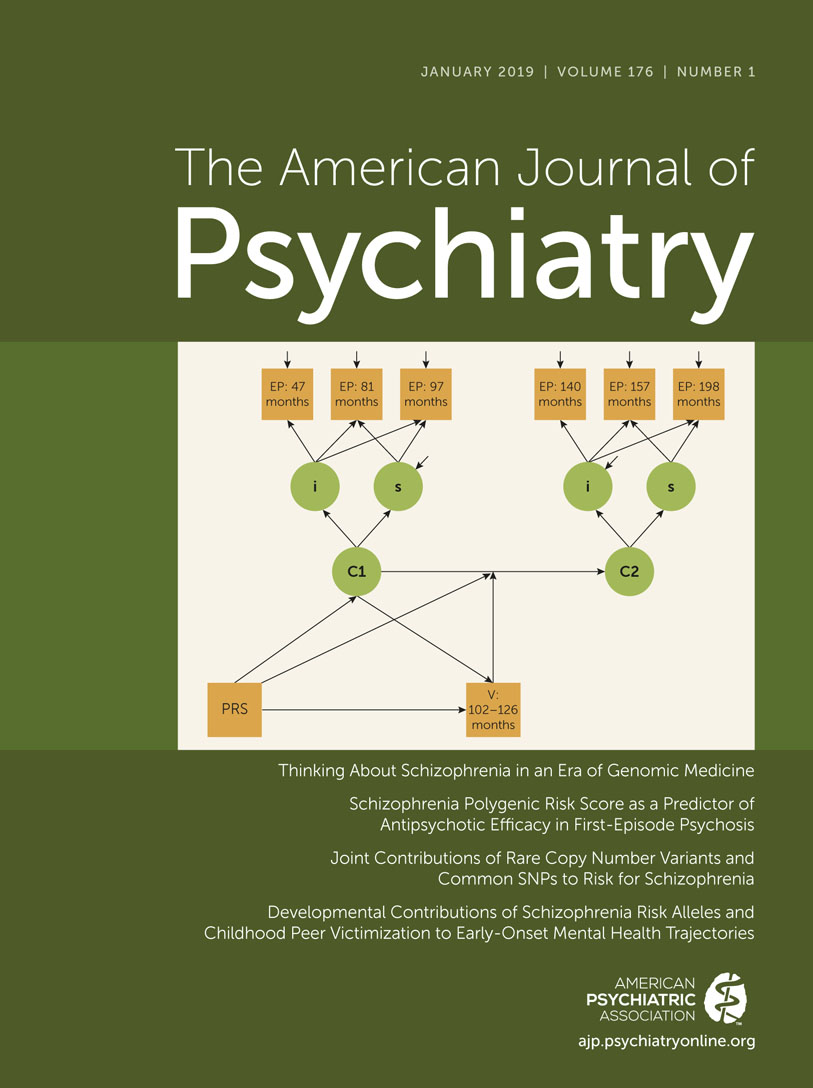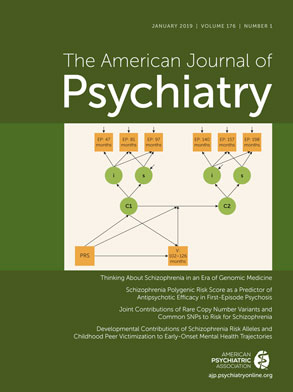T
o the E
ditor: Drs. Messias and Flynn (
1) wrote in the August 2018 issue of the
Journal that “depression and burnout appear to be distinct constructs, the former being categorical and the latter dimensional” (p. 718). On this basis, the authors made suggestions for differentiating burnout from depression in clinical practice. The recommendations of the authors may benefit from additional data addressing the depression-burnout overlap.
First, reducing depression to its clinical stage—to a nosological category—is unwarranted when examining the burnout-depression distinction. Indeed, there is strong evidence that depression is a dimensional phenomenon (
2,
3). Clinical depression reflects the high end of the depression continuum, not the entire depression continuum. The reduction of depression to its clinical stage is therefore an amputation of the depression phenomenon. Such an amputation impedes investigators’ ability to consistently compare depression and burnout because burnout is typically treated dimensionally.
Second, recent factor analytic studies of burnout and depression measures indicate that the discriminant validity of the burnout construct is
not satisfactory (
3,
4). These studies relied on advanced factor analytic techniques.
Third, exhaustion—the core and only consensual characteristic of burnout—has been repeatedly found to correlate more strongly with depression (including anhedonia and depressed mood) than with the two other components of burnout (cynicism and professional inefficacy). Following the commonly accepted definition that a syndrome is a combination of co-occurring symptoms, there is no reason to consider burnout a syndrome of exhaustion, cynicism, and professional inefficacy rather than a depressive syndrome. Interestingly, DSM-5 underlines that “[o]ften insomnia or fatigue is the presenting complaint [in depression]” (p. 162).
Fourth, the authors listed putative differences between burnout and depression (e.g., in terms of self-esteem) based on speculations rather than on well-established empirical findings.
Fifth, the notion that burnout is a useful construct because it allows investigators to examine
work-induced symptoms is misleading. There is evidence that general factors such as neuroticism explain more variance in burnout than occupational-level factors, that burnout involves context-free functional alterations, and that burnout and depressive symptoms are subjectively attributed to work to a similar extent (
3–
5).
Innovative approaches to psychopathology, such as the Research Domain Criteria project, should be helpful in the quest to best understand depressive symptoms in response to unresolvable stress (
3,
6–
7).

